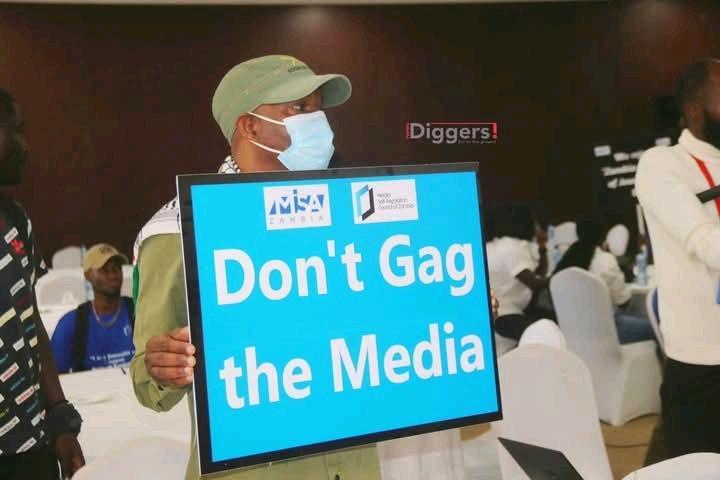The FOX Newspaper
Africa-Press – Zambia. On World Press Freedom Day this year, Zambians in Lusaka witnessed something unfamiliar — two separate marches organized by media stakeholders. While this might have surprised or confused some, it reflects deeper debates within Zambia’s media landscape.
WHAT IS WORLD PRESS FREEDOM DAY (WPFD)?
Observed annually on May 3rd, WPFD celebrates press freedom and reminds governments of their duty to respect and uphold the rights of journalists. In Zambia, it has traditionally been marked by unity in the media sector — with journalists marching together and reflecting on their role in society.
SO, WHAT HAPPENED THIS YEAR?
This year’s theme was “Reporting in the Brave New World – The Impact of Artificial Intelligence on Press Freedom and the Media.” But instead of one united march in Lusaka, there were two:
• The first march was led by the Media Liaison Committee (MLC), a coalition of Zambian media associations that has long organized WPFD events.
• The second march reportedly involved freelance journalists and media NGOs supported by the Swedish Embassy and BBC Media Action.
This unusual development has sparked concern, conversation, and confusion — both inside and outside media circles.
WHY TWO MARCHES?
At the center of the issue is the Zambia Institute of Journalism (ZIJ) Bill — a proposed law created by journalists themselves under a process called statutory self-regulation.
Supporters say:
• The law was developed through consultative “Insaka” conferences held in 2019.
• It would allow journalists to regulate themselves without waiting for government intervention.
• It gives the media sector professional structure and independence.
However, some groups appear to oppose this bill — or at least question it.
Those reportedly aligned with the Swedish Embassy and BBC Media Action seem to favor non-statutory regulation — that is, systems that are voluntary and not written into law. Their reasons may include concerns about future political interference or the belief that laws — even self-written ones — risk compromising press freedom.
WHAT ARE THE CONCERNS?
The MLC accuses the Swedish Embassy and BBC Media Action of:
• Creating division in the media sector.
• Funding a parallel WPFD event that goes against prior media consensus.
• Weakening local media institutions by redirecting support to smaller or freelance-based organizations.
The MLC also says it will report these actions to the Zambian Government and the Swedish Government, raising diplomatic and legal concerns.
However, as of now, there has been no public response from the Swedish Embassy or BBC Media Action explaining their position or intentions.
WHAT DOES THIS MEAN FOR THE PUBLIC?
For the average Zambian, here’s what’s important:
1. This is an internal media debate about how best to structure media regulation and protect press freedom.
2. No law has yet been passed — the ZIJ Bill is still being discussed and can still be improved with more input.
3. Foreign involvement in media support is not unusual, but it must be carefully balanced with national interests and unity.
MOVING FORWARD
Press freedom is a cornerstone of democracy. But so is clarity, unity, and local ownership in media development. As this debate continues, what matters most is ensuring the Zambian media remains professional, independent, and accountable to the people — not to politics or external agendas.
Zambians are encouraged to stay informed, listen to all sides, and engage constructively as these conversations evolve.
Source: zambianobserver
For More News And Analysis About Zambia Follow Africa-Press







